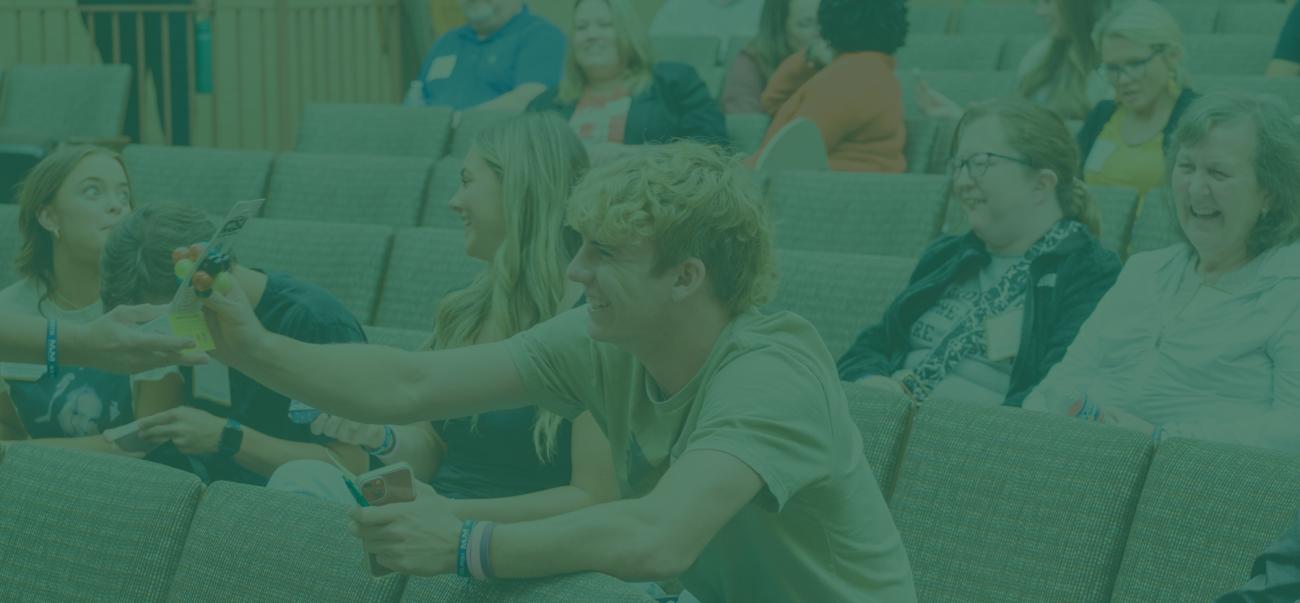
Community Mental Health Awareness Conference Call for Proposals
2025 COMMUNITY MENTAL HEALTH AWARENESS CONFERENCE
October 10, 2025
The last few years have been incredibly challenging times for communities with far reaching mental health and wellness implications for students, educators, and communities. The annual OHIO Southern Community Mental Health Awareness Conference will address such implications interactively through a focus on topics directly related to understanding behavioral and mental health concerns, with an emphasis on community.
Those attending the conference will also be provided with information on local and state mental health resources, as well as resources for continued learning opportunities. This conference aims to initiate a wider conversation about mental and behavioral health in our communities.
Join us to improve understanding about current local and national trends in mental health, examine strategies for promoting positive mental health and collaborate and create change in our community!
Call for Proposals for the 2025 Community Mental Health Awareness Conference
Who Should Submit a Proposal
The OHIO Southern Community Mental Health Awareness Conference is seeking proposals for presentations and workshops that address various aspects of mental well-being. Presentations and workshops should provide insights into empirical findings, assessment and intervention methods, and current topics related to mental health.
Overview of the Conference and Presentation Tracks
Presentations and workshops should focus on the following topics: Self-care for healthcare professionals; stress management; grief; trauma and mental health; substance abuse and recovery; supporting teens through anxiety, social pressures, relationships; examining social media impacts; trauma-informed care; enhancing accessibility and culturally competent care; preventing burnout and fostering well-being among caregivers; mental health in education; mindfulness and resilience; suicide/suicide prevention; mental health concerns of children and adolescents.
We encourage all interested presenters to submit proposals that align with one or more of these topics and provide unique insights into the field of mental health. We welcome proposals from individuals of all backgrounds and professions.
Length of Presentation
Lecture (45-minute presentation followed by 15-minute Q&A): This type of presentation involves a single presenter delivering a 45-minute presentation on a specific topic related to mental health, followed by a 15-minute Q&A session where attendees can ask questions and engage in discussion with the presenter. The lecture is typically structured, with the presenter sharing information and insights in a one-way format.
Workshop (45-minute interactive session): This type of presentation involves one or more presenters leading an interactive, hands-on session that engages attendees in a specific mental health topic. Workshops may involve small group discussions, case studies, role-playing, and other interactive activities. The goal is to actively engage attendees in the learning process and provide them with practical skills and strategies that they can use in their personal or professional lives. Workshops typically last for 45 minutes, the same length as the lecture.
Audience
Conference participants include students, faculty/teachers, employers/employees, educators, community members and entry to senior-level professionals from across the spectrum of organizations and institutions. Presentations should have a wide appeal.
Presentation Scope
Presentations should be interactive, engaging, and relevant to the learning outcomes of this conference. If presentation focus is more appropriate for corporate, social agency, and/or secondary and higher education, it should be clearly identified as such.
Proposal Criteria
Proposals should supplement and enhance the conference with topics that address equal access and opportunity for individuals with disabilities in all aspects of secondary, post-secondary education, and employment.
Submission Information:
Proposals will be evaluated based on their relevance to mental health awareness, potential impact on the audience, alignment with the conference tracks, clarity and coherence of the proposal, and the qualifications of the presenter. We encourage presenters to make their proposals as clear and concise as possible, and to demonstrate how their presentation will contribute to the advancement of mental health awareness.
All proposals will be reviewed by a committee of mental health professionals and educators, who will judge each proposal on its own merits. By providing this information on evaluation criteria, we aim to ensure that all proposals are evaluated consistently and fairly.
Include the following information:
Presenter(s) name, jobs title, institution/organizational affiliation, complete mailing address, telephone number, e-mail address, and biographical information (limit biographical information to 300 words).
Presenters are responsible for providing all handouts.
Please note: All uploaded submissions must be in a PDF format.